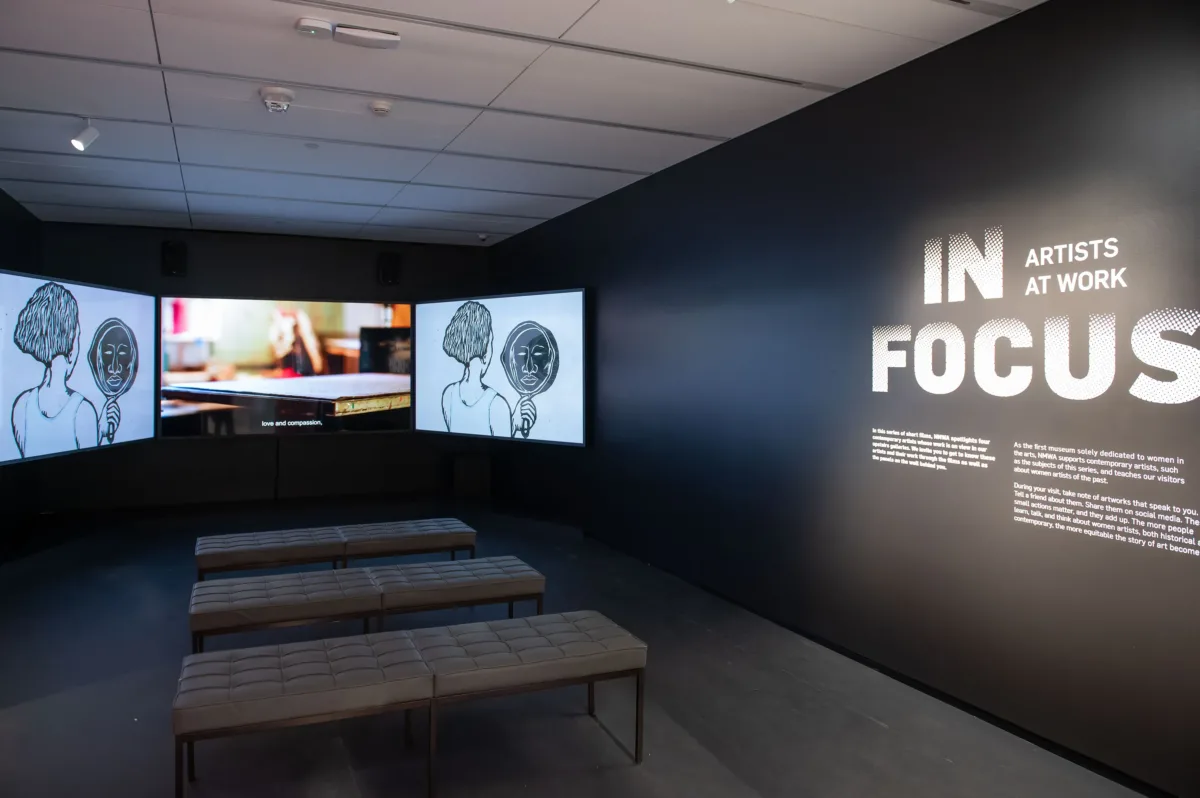Artists at Work Video Series: Rania Matar
Transcript
( gentle music )
[Rania] My name’s Rania Matar.
I’m a photographer.
I photograph mainly women and girls.
My role as a mother, I mean, has shaped my photography from the beginning.
I became a photographer kind of by accident. I started taking workshops to make better pictures of my kids.
( bright music )
I feel there’s something very fresh about discovering somebody for the first time.
( bright music continues )
I feel like because they don’t know me, those women, they’re able to let go completely.
There’s something about some people, some women I find, I’m like, “Oh my God, I need to photograph this person,”
something about the attitude, sometimes the hair, sometimes the way she holds herself.
It’s never about like, what you would think of as traditional magazine beauty for me. I’m actually not interested in that.
( bright music )
( camera clicking )
I think the art world is changing now. There’s a big focus on women artists and non-binary artists,
but when NMWA was created, there wasn’t that focus. It was pretty incredible that there was such a vision to give a platform to women artists, to collect women artists when many museums were not doing that at all.
Look, I want that to turn like this.
It’s important for me that the woman I photograph have agency in the process.
( gentle music )
1, 2, 3.
The women are not passive in the landscape, but they’re actually owning it. There’s a majestic presence to that.
( gentle music continues )
I live in the US now, and it’s not till September 11 that it became important to me to deal back with my whole sense of being a Lebanese and a Palestinian and American.
The narrative was all this “them versus us.” So I am “them,” and I am “us,” and how do I deal with that?
( siren wails )
In 2006, I was in Lebanon with my four kids. My father calls at 8:00 AM, he’s like, “Don’t leave the house. The airport’s closed, and Israel is bombing Lebanon.”
Eventually we escaped via Syria.
When I arrived at the borders, there was a truckload of women and children.
I jumped out of the car at the border, and I photographed them
and that’s the only picture I took then.
That moment, and I still get the chills when I talk about it, made me realize that everybody had a story.
Once the war ended, I did go back, and I photographed quite a bit.
It was always my focus on the women because it felt like the mothers were holding it all together for their families.
I’m in awe of them. The country’s falling apart, but they are present, and they are strong.
Often people in the West portray women from the Arab world as oppressed,
so for me it’s important to also challenge that misconception.
Being from two cultures is complicated. I feel like I have a foot in each country, but it’s also kind of a gift in a way.
I completely see myself in those women.
We’re creating a narrative together, but on some level, all these portraits are also self-portraits for me.
( gentle uplifting music )
In Focus: Artists at Work

